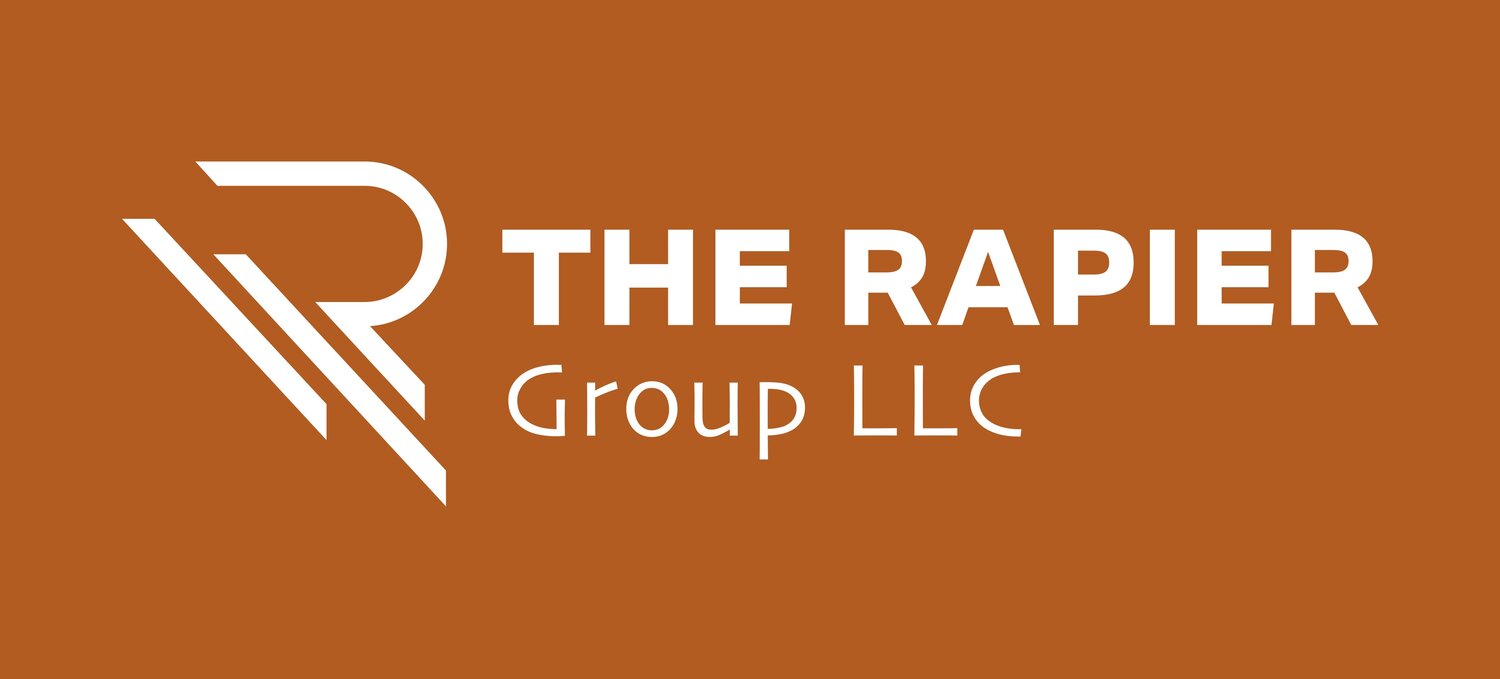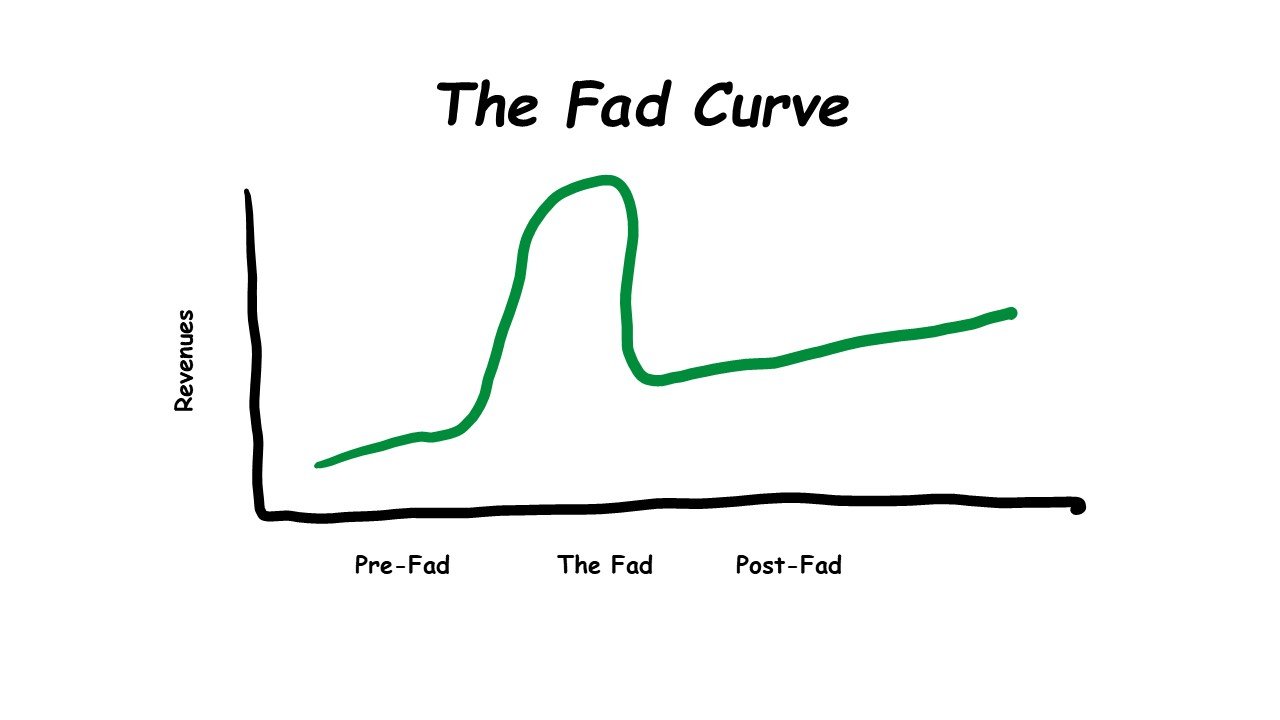Fads – Are They Opportunities or Threats?
Today’s second topic discusses DEI.
Word Count: About 1,600 words, with an approximate reading time of 6 to 8 minutes. Please share your thoughts in the comments. Please be kind and subscribe to my newsletter.
Links to purchase the books discussed in this newsletter can be found on my website's recommended reading page.
Fads come and go. From tulips in 1600s Holland to today's Stanley Quencher craze, there is always a fad to follow. It is critical to understand the difference between a fad and a trend.
Oxford Languages defines a fad as “an intense and widely shared enthusiasm for something, especially one that is short-lived and without basis in the object's qualities.” One important note: while quality is not a factor in what is a fad or not, fad products can be of very high quality. Oxford defines a trend as “a general direction in which something is developing or changing.” Fads and trends are often confused
This confusion is where fads create danger for companies. When companies react to a fad as if it were a trend, they often make poor planning decisions. They make commitments and spend their resources in the wrong places. Demand for a fad will always fade. Sometimes, the drop-off is gradual. More often than not, the fall is dramatic as attention moves to the next shiny new toy.
Fads provide short and long-term opportunities. As demand skyrockets, there is a short-term opportunity to generate a massive increase in revenue. The response has to be managed carefully. Increasing capacity to meet the surge should be done through subcontracting rather than acquisitions or capital projects. While some revenue and profit may be left on the table, these expansions are reversible. When the fad fades, subcontracts end. There is less burden of underutilized capital.
To create long-term opportunity, leaders must manage The Fad Curve. With market awareness, companies can refine and extend their image and reputation. In Stanley’s case, the Tumbler craze is an opportunity to expand and strengthen its reputation. For over 100 years, Stanley has been making quality vacuum-insulated bottles. The Quencher fad is an opportunity for Stanely to displace Yeti as the highest-quality product in the space. When the fad dies down, and it will, their revenues will stabilize at a higher level than before the fad started.
With social media, more fads will arise faster and more frequently. Responding quickly and intelligently will be essential to taking full advantage of any opportunity.
Related Articles
Why Fads Aren’t Always Bad (BBG&G)
Trends and fads are different concepts (media are plural)
A $45 Stanley water bottle is everything that’s wrong with America right now (yahoo!finance)
The quiet status symbols you're going to be seeing everywhere in 2024 (Business Insider)
Will reusable cups become as common as grocery totes? (BBC)
The Real Story Behind the 17th-Century ‘Tulip Mania’ Financial Crash (History)
Here's how it (Peleton) went from a pandemic-era success story to losing money. (Business Insider)
This article came out as I was finalizing this newsletter.
DEI – Difficult Discussions Are Needed
Mark Cuban and Elon Musk were arguing about DEI via X (a.k.a., Twitter). Cuban says it is good business. Muck says is a racist idea. These points of view reasonably reflect many of the public discussions on the topic. I believe the subject is more nuanced and not as binary as many claim.
DEI works well when used to reach out to people who might otherwise be missed. We always need to find the best and brightest to join our organizations. Teams that are comprised of people with different points of view who work together in a genuinely collaborative way come up with better ideas and solutions.
DEI fails when success is measured by statistical outcome. When DEI becomes a quota system, by definition, better qualified individuals may be passed over. This potential is what drives much of the backlash today. This criticism is highly visible in higher education.
There is a possible unintended consequence to the push to eliminate DEI. Companies you may want to work with without these outreach programs can exclude you for any reason.
True Story: I worked for a non-US company whose CEO had good luck hiring people to build out his American subsidiary, who went to a well-respected university, STATE TECH. As the organization grew, he refused to move anyone who did not go to STATE TECH above the level of Director. Good talent left, and the US leadership team became a clique. Eventually, sales fell, and US operations were eventually sold.
Another True Story: A friend of mine was passed over for a promotion because he did not have an MBA. At the time, he had over 20 years of industry experience. The MBA they hired had less than five. The business unit struggled while she learned. It told those who did not have MBAs had no meaningful future with the organization.
Rather than drop DEI, I would prefer to see it strengthened to look at more than the high-profile factors that are currently considered.
Related Articles
3 Reasons Why Mark Cuban Is Right About DEI (Forbes)
DEI backlash hits corporate America (Axios)
Who is Bill Ackman and why is he so mad? (Vox)
What I’m Up To
I am excited to share that LinkedIn has included me in their Top Voice program.
The blue LinkedIn Top Voice badge is an invitation-only program featuring a global group of experts on LinkedIn covering a range of topics across the professional world, helping members uncover valuable knowledge relevant to them. Top Voices was previously known as the Influencer program.
This honor is because of LinkedIn members. Thank you to all who regularly read, comment on, and reshare my bi-weekly newsletter and posts. For those who have not done so, please subscribe to my LinkedIn newsletter using the link on my profile.
I hope to keep my activity interesting, helpful, and entertaining.
I included a collection of baseball cards in the collage of fads at the top of this article. I have some personal history to share.
Photo by Mick Haupt on Unsplash
There is a picture of Adrian Beltre of the Texas Rangers. Beltre was elected to the Baseball Hall of Fame this week. I am one of the few people who can say they attended a Rangers home game in 1972, their first year in Texas.
There is a team photo of the Seattle Pilots. The Pilots were only in Seattle for one year; they moved to Milwaukee the following year. I am one of the few people able to say they attended a Seattle Pilots home game.
Chips and Salsa: Snack-sized news and posts
My mother-in-law passed away last year due to Alzheimer’s. My father-in-law suffers from this disease as well. This is an interesting approach to improving the quality of life.
My Parents' Dementia Felt Like the End of Joy. Then Came the Robots. (Wired)
A story of effective brand management, it all starts with a high-quality product.
Often, the best way to sound smarter is to make no sound at all.
3 ways to sound smarter in your next meeting (Fast Company)
It is not about when you go to bed. What matters is how much sleep you get.
Why You Stay Up So Late, Even When You Know You Shouldn’t (Wired via Pocket)
Whether you agree with Ray Dalio, his opinions are worth reading. He provides enough data and historical context to help you form an educated opinion.
2024: A Pivotal Year on the Brink (LinkedIn)
Given how markets work and some basic human nature, long-term financial trends are often overlooked until it is too late.
Gen Z vs. the Silver Tsunami (Business Insider)
Things to consider as we move past the early adopter stage of electric vehicles.
What happened to EVs? (Business Insider)
Life is hard work. The further back in time you look, the harder it was. Spoiler alert: Life will always be hard, just in different ways.
You Would Not Survive A Day In Medieval Times (Medium)
I miss our dog. We had to put him down in early December after 16 good years.
Why Do Dogs Wag Their Tails? Scientists Examine the Endearing Behavior (Smithsonian Magazine)
Quiet Cutting and Quiet Quitting are extremely passive-aggressive behaviors that, left unaddressed, will become a cancer in the corporate culture. (Where’s my red stapler?)
Milton’s Saga: The Rise of Quiet Cutting (Clearance Jobs)
This is a public form of passive-aggressive behavior. Getting laid off is hard. Delivering the message is not easy either, and many people do it poorly. Recording the call, posting the video, and complaining about the process creates an incredibly unprofessional image for the poster.
Workers are filming their layoffs, then posting them to TikTok. What could go wrong? (BBC)
The right idea at the wrong time is still wrong.
Two Technologies That Were Way Ahead of Their Time (Medium)
Those who have self-control can respond rather than react. This is essential for a good life and a good career.
The secret life of people with high self-control (Medium)
Technology is never the answer. Technology is only an enabler.
It’s hard to admit, but sometimes, technology isn’t the answer (Medium)
Quotes
“Many people lose the small joys in the hope for the big happiness.”
- Pearl S. Buck
“When prosperity comes, do not use all of it.”
- Confucius
“I cook with wine, sometimes I even add it to the food.”
- W.C. Fields
You can order The Leader With A Thousand Faces on the Recommended Reading Page of my website.
My goal is to make this newsletter as interesting and valuable as possible. Please share your thoughts and suggestions for improvement. If there are specific topics in leadership you would like me to focus on in future issues, please send them my way.
You can follow this newsletter on either LinkedIn or Medium.





